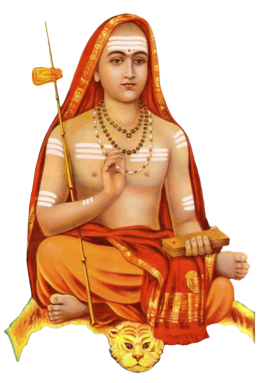मनश्चक्षुरादीन्यबोधात्मकानि ।
प्रवर्तन्त आश्रित्य निष्कम्पमेकं
स नित्योपलब्धिस्वरूपोऽहमात्मा ॥२॥
manaścakṣurādīnyabodhātmakāni .
pravartanta āśritya niṣkampamekaṃ
sa nityopalabdhisvarūpo’hamātmā .. 2..
English Translation and Notes based on the Bhashya of Sri Sankara
Translated by S. N. Sastri
Changeless and non-dual: The one, non-dual Self dwells in all bodies. It is ever the same and is not subject to any change whatsoever.
Heat is the very nature of fire. Heat and fire are inseparable. Heat is not an attribute of fire. An attribute is a quality which can be found in more than one substance. For example, colour is an attribute, because it can be found in many different flowers and even in other substances. But heat can never be seen separately from fire. In the same way, consciousness does not exist anywhere other than in the Self. Consciousness is therefore the very nature of the Self and not an attribute.
The mind, eye and other organs are all insentient and are therefore incapable of functioning on their own. It is only because of the reflection of the Self, which is pure consciousness, in the mind, that the mind appears to be conscious, just as the moon appears to be bright only because of the reflection of the sun’s light on it. All the organs function only because they are enlivened by the Self.
Now a doubt arises. It has been said in the preceding verse that the same Self dwells in all bodies. If this is so, then, when one person is happy all others should also be happy and when one is suffering all others should also suffer. But this is not the case. So the Self in each body must be different. This doubt is answered in the following verse.
Hastamalakiyam – Verse 2 – Hastamalaka-2-yamagnyuṣṇavan – In Sanskrit with English Transliteration, Translation, Meaning and Bhashya – Commentary by Sankaracharya – Hastamalakiyam-2

